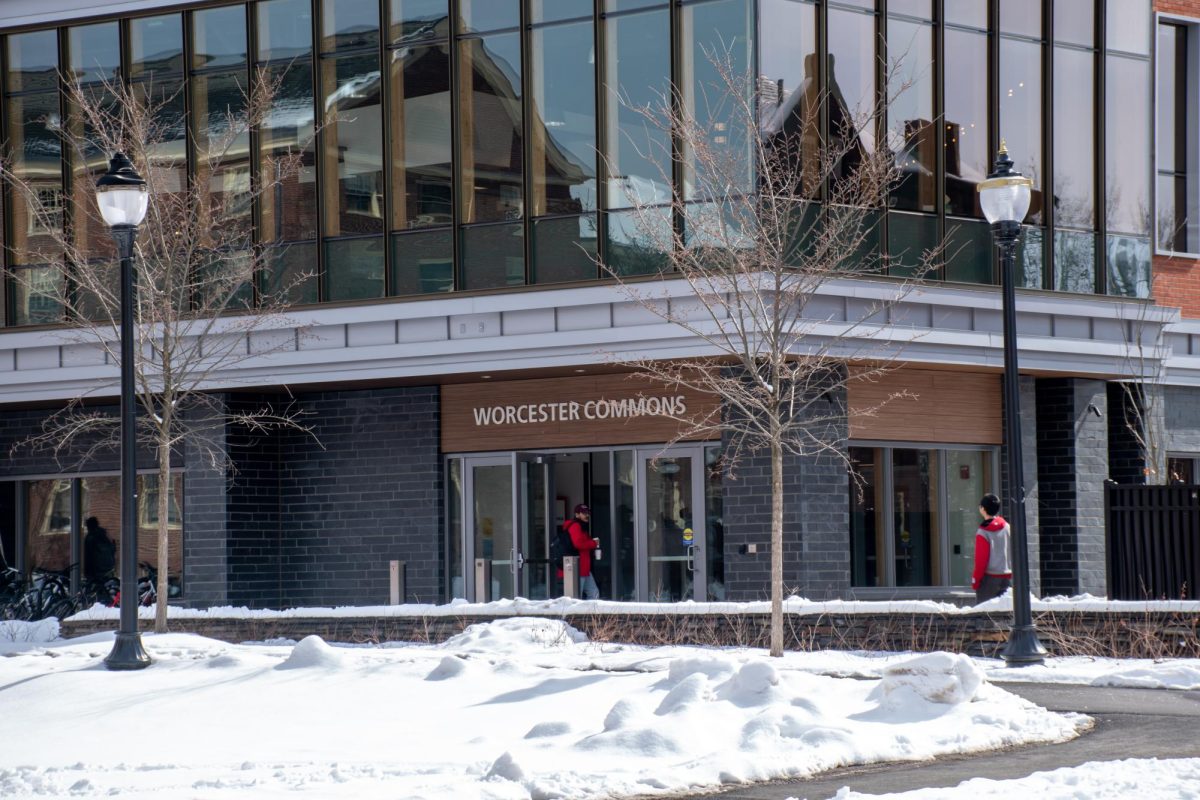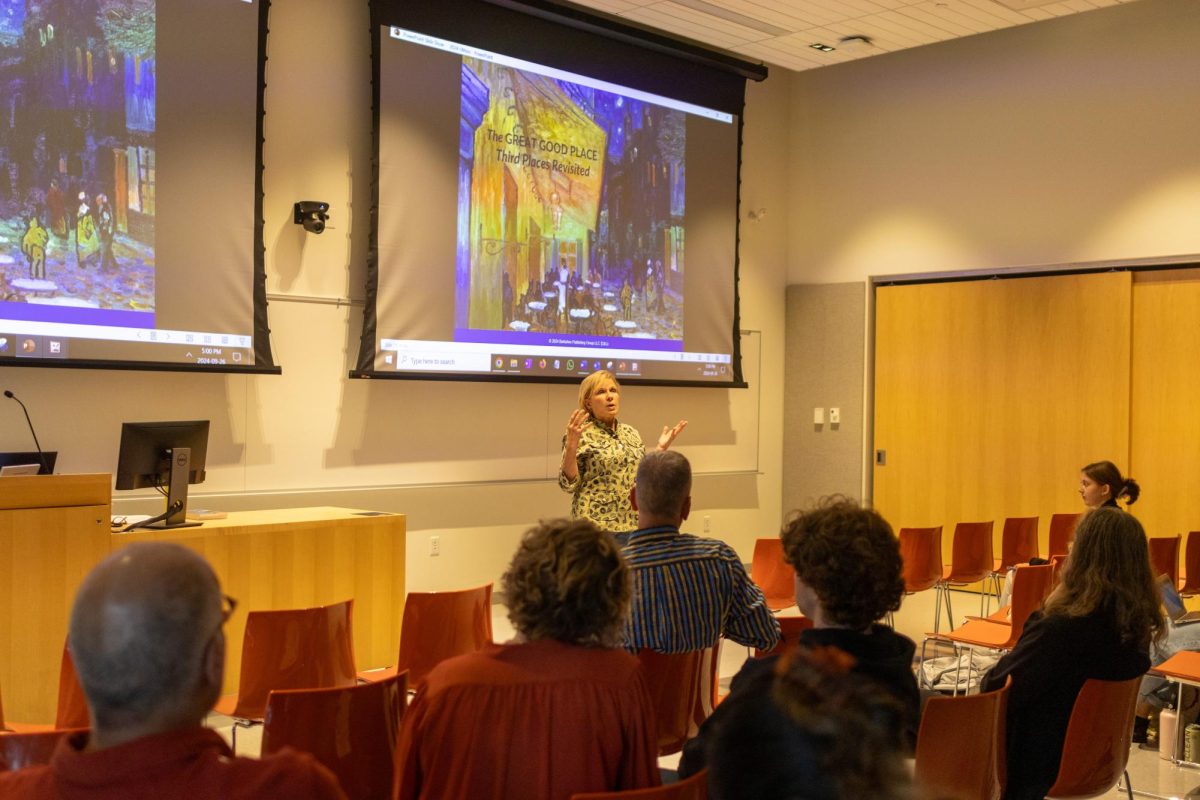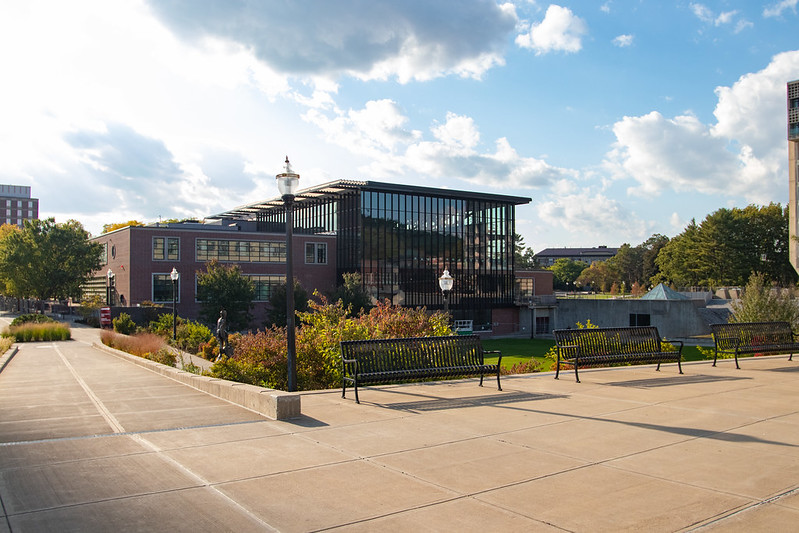As a tour guide and resident assistant at the University of Massachusetts, Connor Boushell sees first hand the excitement and high expectations both high school students and even freshmen and sophomores have for the start of their college experiences. He also has experienced the disappointment of these expectations not being met.
“College is billed as the best four years of your life,” said Boushell. “But not every moment of college is fun and glory. When [you] aren’t having the best four years of your life, you’re like, ‘What’s wrong with me?’ And [you] start to get depressed.”
Many college students at UMass and across the country can empathize with Boushell and have dealt with stress and anxiety in some form while at college. A recent poll by the Higher Education Research Institute found that 51.9 percent of last fall’s incoming college students classified their emotional health as being “above average” or in the “highest 10 percent.” The statistic was 3.4 percent points higher in 2009.
To counter this downward trend and aid students dealing with a variety of mental health and social issues, the Center for Counseling and Psychological Health – a division of the UMass Health Services – has expanded its support and therapy group program this year.
Julia Moss, a CCPH staff psychologist and University employee since 2009, has become the coordinator of the group therapy program and has sought to increase and diversify the groups that are offered.
“I got some feedback [from UHS] about what they saw the needs of the University community as, and so we decided to pilot some new groups,” said Moss.
The three new groups this year are one tailored towards aiding those with attention problems, a general therapy group for undergraduate women and a group for graduating seniors, she said. Many groups have been in place prior to this year including a men’s group, groups dealing with anxiety, mindfulness and stress and a group for those who have lost a loved one.
Sociology professor Richard Tessler said that having a group of people that one could depend on – whether it is in the form of an organized support group or simply a group of friends – was “the key to mental health.”
“It’s especially important on a large campus like this where you can be very alone,” said Tessler. “Any kind of group membership is potentially a good thing in terms of feeling belonging, feeling that your life matters, having a comparison reference point and having opportunities to get to know other people.”
Tessler explained that the benefit of group therapy lies in the individuals’ common needs to feel listened to and accepted.
“One of the things that people in group therapy sessions are looking for is to feel understood, perhaps especially by their peers,” he said. “Even if there is no advice giving [or] no fix … if a person feels listened to, understood [and] cared about, it really goes a long way.”
Tessler added that the groups could also reduce a feeling of isolation in the individual.
“As a group, any individual is not just talking about their own issues but also listening to what other people have to say about theirs,” he explained. “Even if nobody else has exactly the same problem or is facing exactly the same issue, it reduces the feeling of being alone.
“Sometimes people think that there is something wrong with them, that they have this problem that nobody else in the world does,” he continued. “Through the support groups, they quickly learn otherwise.”
Through therapy, the individuals may appreciate the connection they have made with their peers and also be able to give help to others in the group as well, said Tessler. This can be “empowering” to the individual and help them feel better about their own situation in the process.
Susan Whitbourne, a psychology professor and director of national scholarship advisement, also stressed the importance of group participants being able to help one another. In some situations, she said, peers may even be better suited to help than therapists.
“Peers can benefit from hearing about the experience of other peers,” said Whitbourne. “Therapists – though well-trained to deal with a lot of psychological issues – may not have a particular expertise in that specific area. So by having students talk to other students, they can support each other and share their own reflections on their experiences.”
Another advantage of the groups, according to Whitbourne, is the time and resources they save the mental health institution. She referenced a New York Times article that revealed a growing trend of psychiatrists who spend their time only giving out medication and not doing talk therapy.
“It was really a shock. We’ve known about this but seeing it on the front page of the Times, it just blew this whole thing open,” she said. “You could be seeing a psychiatrist, thinking you’re going to get therapy, but you’re really going to get your medication and that’s it.
“I know that a lot of times, even student mental health services are really strapped for amount of time that individuals can get therapy,” she continued. “By having an adjunct of group therapy with individual therapy, you then are getting a bigger benefit.”
Boushell felt the effects of this first hand in the fall of 2009 when he said he tried unsuccessfully to arrange a therapy session with UMass mental health services. After abandoning pride and working up the courage to call, Boushell said he spoke with a nurse and was given a series of questions in the form of an on-phone triage.
According to Boushell, the nurse told him he needed therapy but because the semester’s end was five weeks away, she didn’t find it advisable to schedule an appointment.
“I was like, ‘What? You just said I was all messed up,’” said Boushell. “I pushed her and pushed her and pushed her and she said, ‘O.K. we’ll try to set something up. We’ll call you tomorrow.’ They never called.”
Boushell said he tried two more times but was unsuccessful. His father then found a therapist in the town of Amherst, who Boushell contacted. They now have weekly meetings. For Boushell, the individual one-on-one method is his ideal form of therapy.
“I’m honest to the point of recklessness, but most people aren’t,” he said. “And there are still things I don’t tell the therapist. In group therapy you need to be even more of a communicator.”
In contrast, Moss believes that the group therapy holds significant benefits for the individuals over one-on-one therapy. In particular, she said, it allows participants the opportunity to understand and work on their interpersonal issues in a way that she feels is not possible in a client-therapist setting.
“A group becomes kind of a microcosm of people’s lives,” said Moss. “If people struggle, if they have a hard time asking for what they want and getting their needs met, that will emerge in a group. People have the opportunity to deal with that, the ways in which it is hard to step in and ask for things in a group.
“[The group dynamic] is very different than if someone is in a client role [where it is] easier for people to know it’s their time,” she continued. “When you’re in a group, people struggle with those kind of issues.”
The groups are run by professionals, including several mental health specialists and meet weekly for an hour and a half, Moss said. The attendance in the groups varies from four to 10 students. She also noted that group enrollment was successful for many of the groups this year because of increased marketing by CCPH in the forms of fliers, table tents and more. Because of a need for an upper cap on attendance, there was at least one group where significant interest forced CCPH to close the group and turn away some interested students, she said.
Moss said she hopes to avoid this in the future by adding multiple times for specific groups based on interest. She also will consider new topics for the groups.
“I think that group is an amazing opportunity and [something that] anyone can benefit from,” she said. “I’ve done a lot of different kinds of groups in the past so we could do more groups for recovery or substance abuse, eating disorder or death of a parent. I’m hoping to expand it and constantly [be] sensitive to the needs of the community and interests of people.”
Group registration for this year has closed but more information about the program and other CCPH services can be found at http://www.umass.edu/uhs/counseling/.
Chris Shores can be reached at [email protected].












